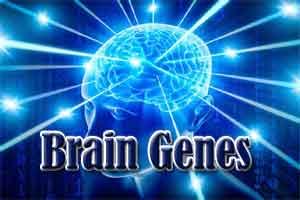- Home
- Editorial
- News
- Practice Guidelines
- Anesthesiology Guidelines
- Cancer Guidelines
- Cardiac Sciences Guidelines
- Critical Care Guidelines
- Dentistry Guidelines
- Dermatology Guidelines
- Diabetes and Endo Guidelines
- Diagnostics Guidelines
- ENT Guidelines
- Featured Practice Guidelines
- Gastroenterology Guidelines
- Geriatrics Guidelines
- Medicine Guidelines
- Nephrology Guidelines
- Neurosciences Guidelines
- Obs and Gynae Guidelines
- Ophthalmology Guidelines
- Orthopaedics Guidelines
- Paediatrics Guidelines
- Psychiatry Guidelines
- Pulmonology Guidelines
- Radiology Guidelines
- Surgery Guidelines
- Urology Guidelines
Brain genes can be damaged due to High-fructose diet

New York : Fructose, a sugar common in the western diet, can damage hundreds of brain genes in a way that could lead to a range of diseases from diabetes to cardiovascular disease, and from Alzheimer's to attention deficit hyperactivity disorder warns a new study.
However, the researchers discovered good news as well: An omega-3 fatty acid known as docosahexaenoic acid (DHA) seems to reverse the harmful changes produced by fructose.
"DHA changes not just one or two genes; it seems to push the entire gene pattern back to normal, which is remarkable," said Xia Yang, assistant professor at the University of California Los Angeles (UCLA).
DHA enhances learning and memory. It is abundant in wild salmon (but not in farmed salmon) and, to a lesser extent, in other fish and fish oil, as well as walnuts, flaxseed, and fruits and vegetables, co-senior author Fernando Gomez-Pinilla, an UCLA professor, pointed out.
The research was published online in the journal EBioMedicine.
To test the effects of fructose and DHA, the researchers trained rats to escape from a maze, and then randomly divided the animals into three groups.
For the next six weeks, one group of rats drank water with an amount of fructose that would be roughly equivalent to a person drinking a liter of soda per day.
The second group was given fructose water and a diet rich in DHA. The third received water without fructose and no DHA.
After the six weeks, the rats were put through the maze again. The animals that had been given only the fructose navigated the maze about half as fast than the rats that drank only water indicating that the fructose diet had impaired their memory.
The rats that had been given fructose and DHA, however, showed very similar results to those that only drank water which strongly suggests that the DHA eliminated fructose's harmful effects.
Other tests on the rats revealed more major differences: The rats receiving a high-fructose diet had much higher blood glucose, triglycerides and insulin levels than the other two groups.
Those results are significant because in humans, elevated glucose, triglycerides and insulin are linked to obesity, diabetes and many other diseases.
The research team sequenced more than 20,000 genes in the rats' brains, and identified more than 900 genes that were altered by the fructose.
The altered genes they identified, the vast majority of which are comparable to genes in humans, are among those that interact to regulate metabolism, cell communication and inflammation.
Among the conditions that can be caused by alterations to those genes are Parkinson's disease, depression,bipolar disborder, and other brain diseases, Yang said.

Disclaimer: This site is primarily intended for healthcare professionals. Any content/information on this website does not replace the advice of medical and/or health professionals and should not be construed as medical/diagnostic advice/endorsement or prescription. Use of this site is subject to our terms of use, privacy policy, advertisement policy. © 2020 Minerva Medical Treatment Pvt Ltd